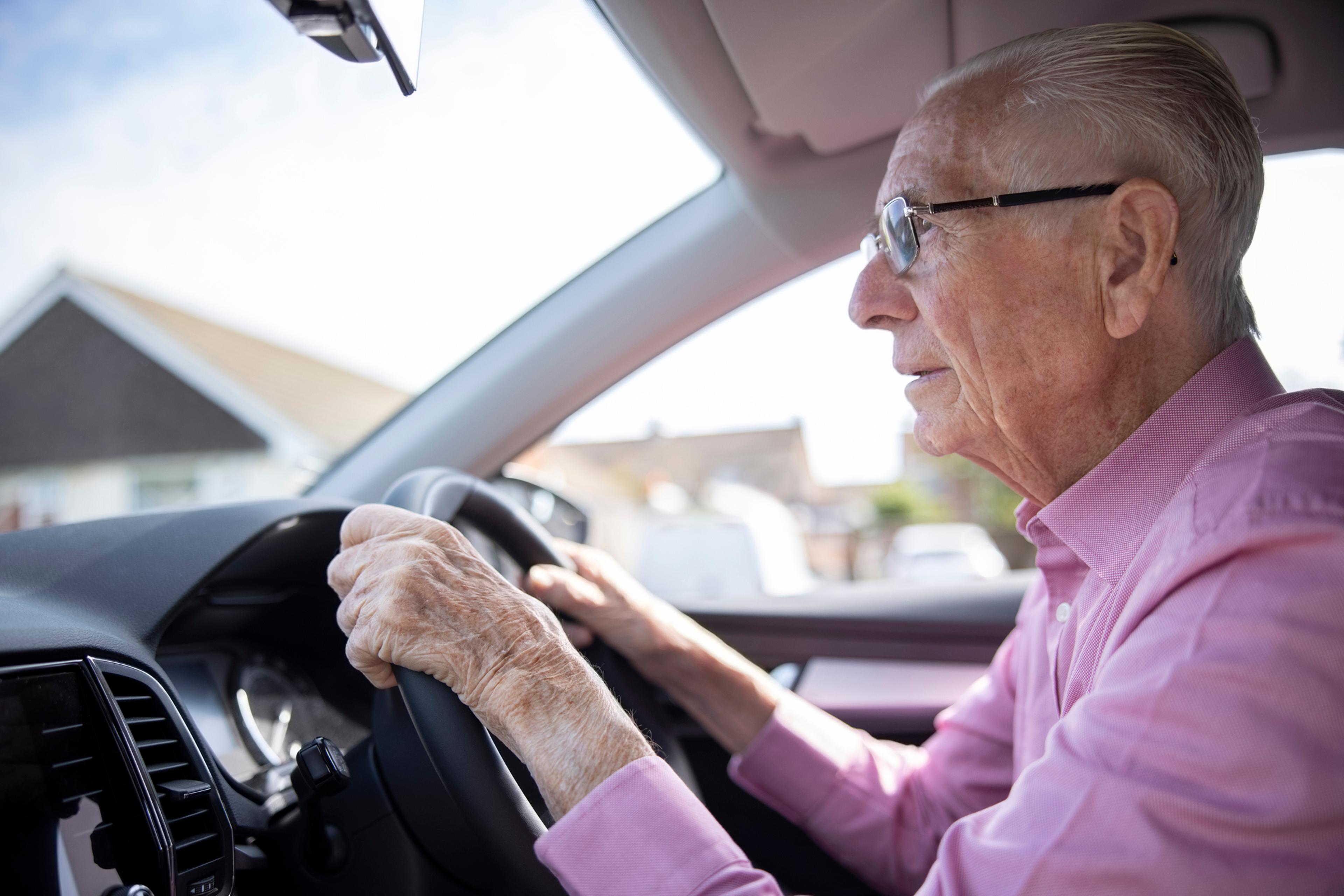Birth Detroit, Rootead Enrichment Center Empower and Support Mothers of Color with Crucial Prenatal, Postnatal Services

Jake Newby
| 6 min read
Jake Newby is a brand journalist for Blue Cross Blue Shield of Michigan.
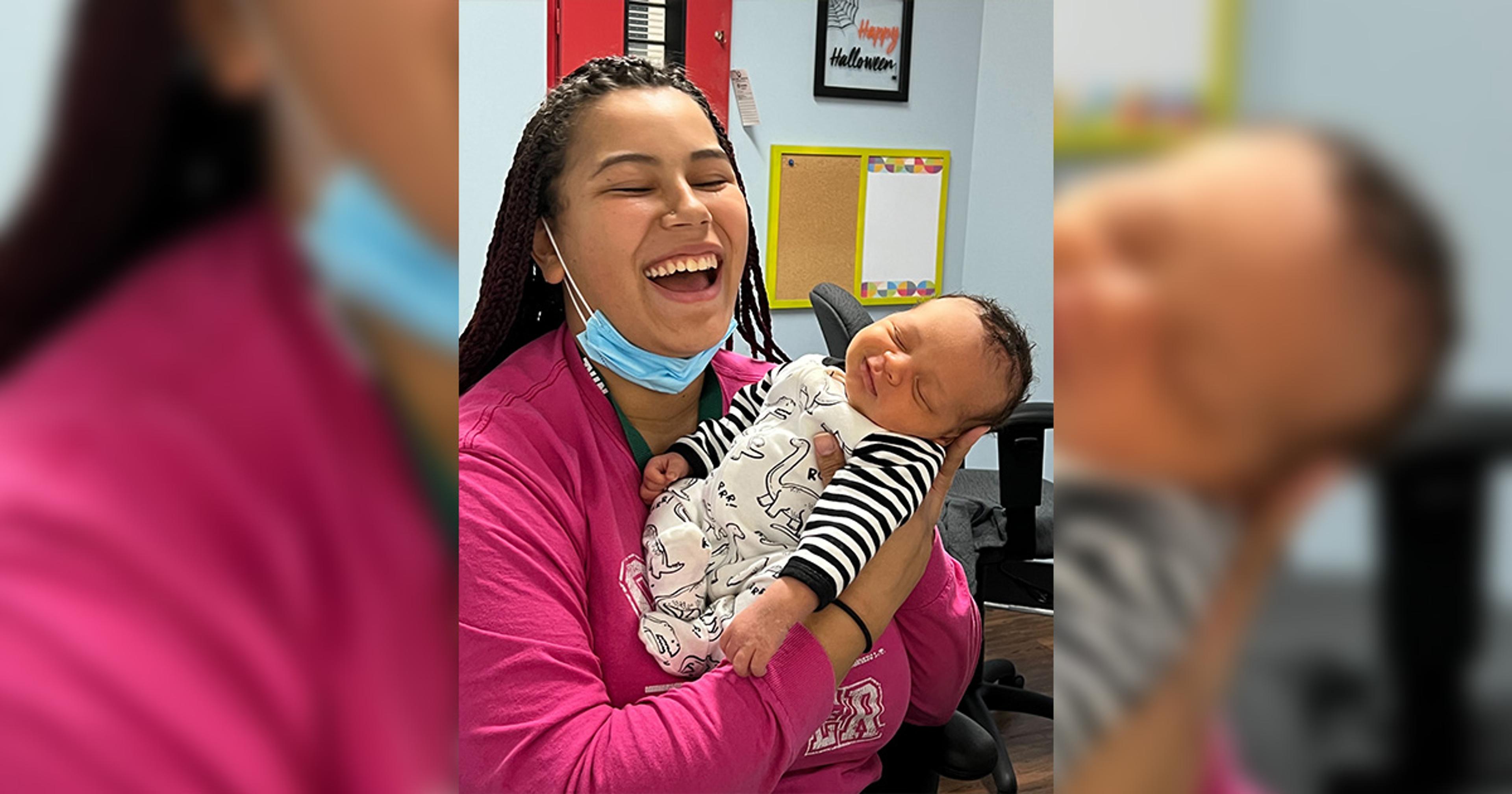
In Michigan, Black women were 2.8 times more likely to die from pregnancy-related causes between 2015-2019 than white women, according to the Michigan Department of Health and Human Services’ (MDHHS) last five-year report on maternal deaths in the state.
In Detroit, the issue of Black maternal mortality and Black infant maternal mortality is particularly glaring. In 2021, the mortality rate among Black infants was 18.1 per 1,000, marking the second-highest yearly total in Detroit in nearly 20 years.
Meanwhile in Kalamazoo, babies born to Black mothers are three to four times more likely to die before their first birthday than babies born to white mothers. The average death rate for Black infants in Kalamazoo between 2019-2021 was 14.6 per 1,000 births. In the same span of time, the average death rate for white infants was 5.6.
Michigan nonprofits are working tirelessly to reverse these outcomes over the coming years. Birth Detroit’s easy access clinic serviced 145 families in 2022 with pre- and post-natal services, whether recipients could pay or not. And Kalamazoo’s Rootead Enrichment estimates helping between 50-55 families with its midwifery services and Red Birth Green (RBG) Doula Collective.
These two organizations received Community Health Matching grants from the Blue Cross Blue Shield of Michigan (BCBSM) Foundation in the last two years, an initiative aimed at developing population-led, community-inspired programs to address community-identified needs; experiencing a healthy, stress-free birthing journey – without the fear of prejudice or improper care – is certainly a community-identified need in Detroit and Kalamazoo.
Birth Detroit and Rootead each pattern their clinics after the JJWay® maternal health model Easy Access Clinic™. The JJWay Model reduces disparities and improves outcomes by operating from the premise that every parent who chooses to birth wants a healthy baby and that every parent deserves one.
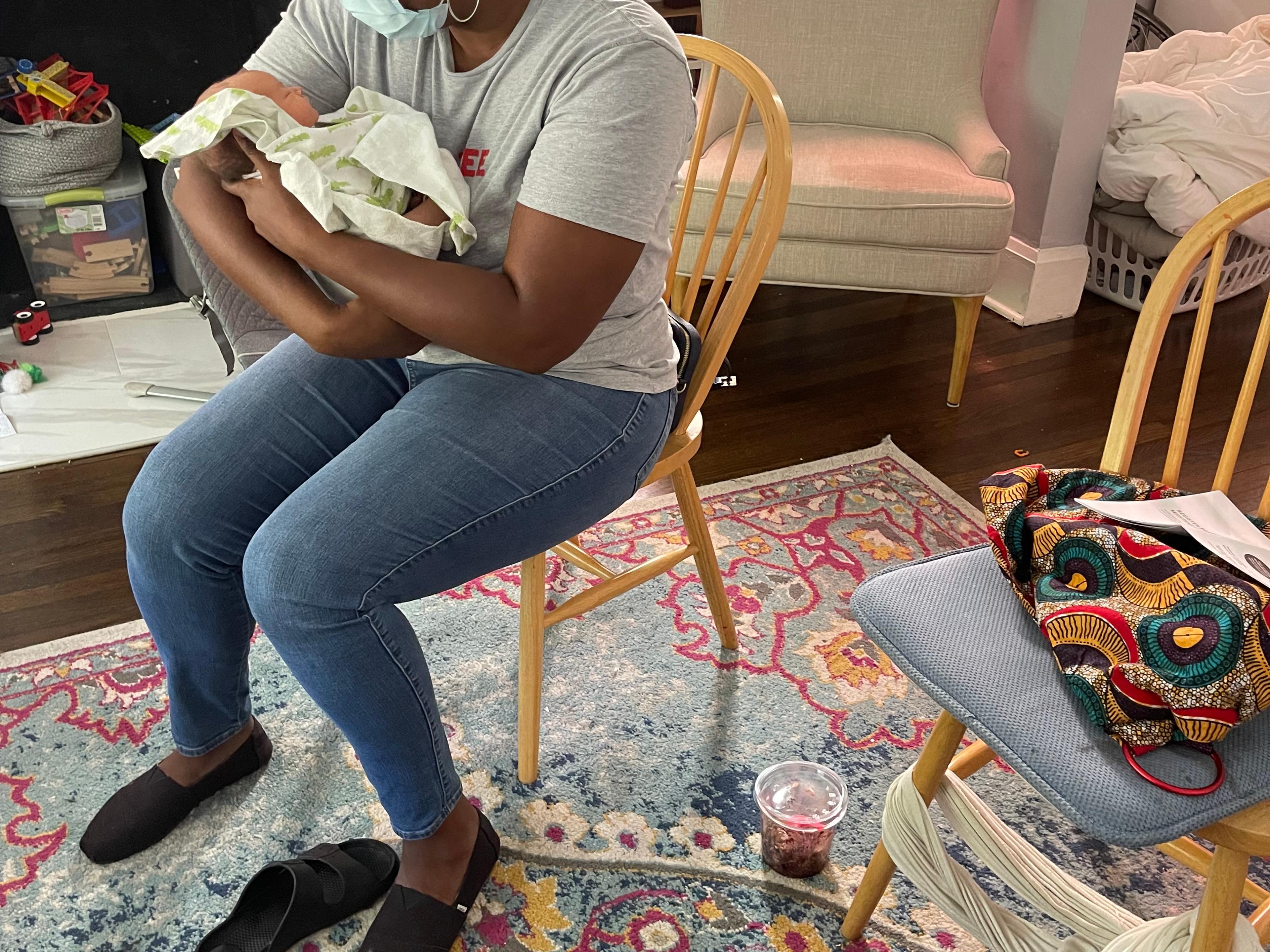
“We know that racial disparities in maternal health care can endanger the lives of Black mothers and their babies,” said BCBSM Foundation Executive Director and CEO, Audrey Harvey. “To us, it’s essential to provide resources to nonprofit groups like Birth Detroit and Rootead Enrichment Center that are passionate about improving as many maternal health outcomes as possible in their communities.”
Birth Detroit
Birth Detroit has raised over $2,000,000 to open its own freestanding birth center in Detroit, a project that clinical director Char'ly Snow said the community eagerly awaits. The center should open in late 2023, but in the meantime, Birth Detroit has focused itsresources on bolstering its nationally accredited easy access clinic in Detroit, where the organization has offered services twice a week since October 2022.
Birth Detroit clients receive on-site labs and ultrasounds at the easy access clinic, which will be absorbed by the birthing center once open. The organization’s pre-and post-natal midwifery services is based on culturally congruent care, connecting Black midwifes to Black clients, a system Black mothers in Detroit have clamored for over the years.
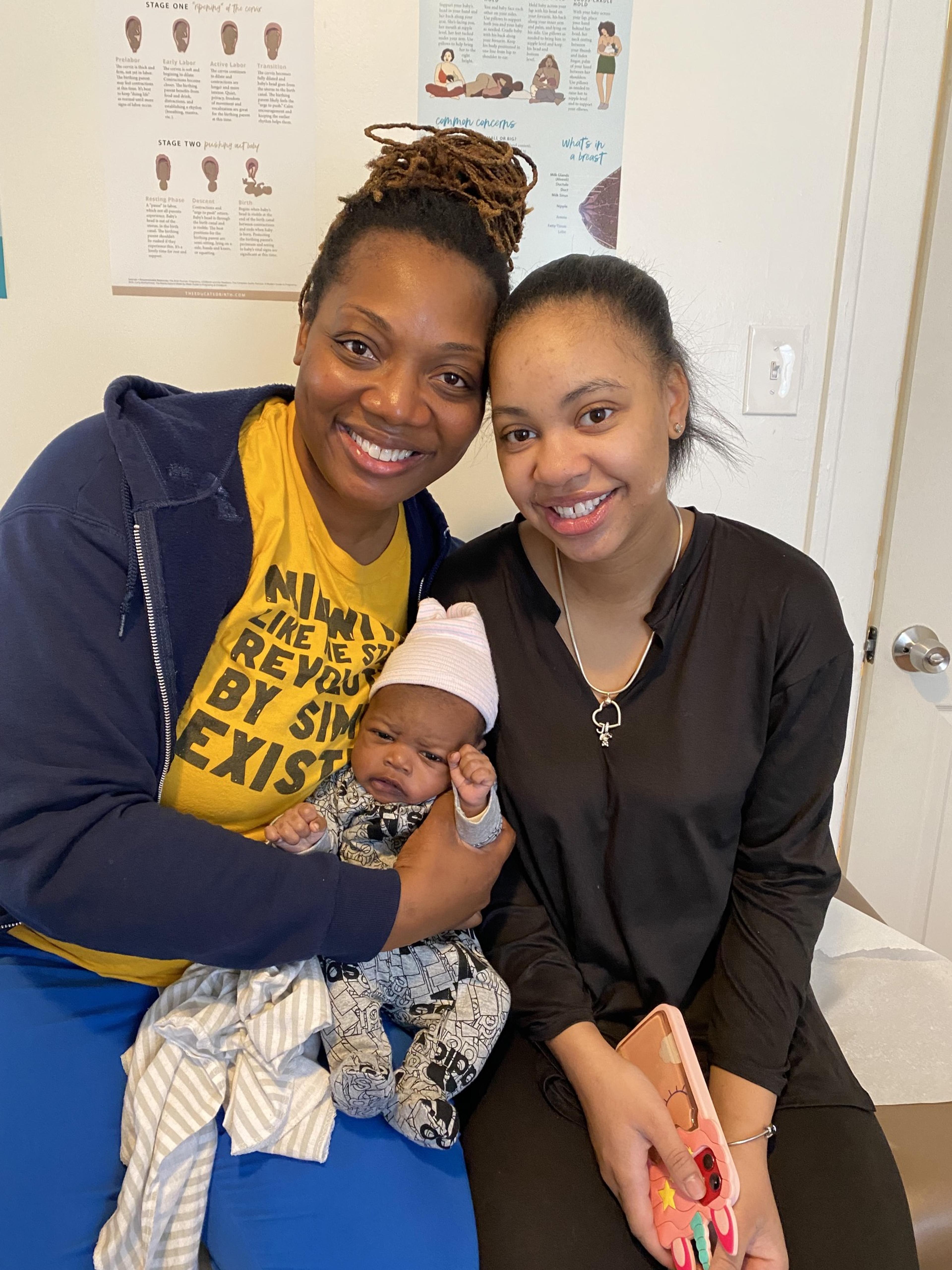
“They want care from people that look like them, have shared lived experiences,” Snow said. “And are less likely to put them in what they would consider harmful situations. Racist, institutionalized situations would are considered less likely when care is culturally congruent.”
Birth Detroit’s $38,000 BCBSM Foundation grant in 2022 was mostly allocated toward three crucial facets of the organization’s operations: Postpartum visitation services, prenatal supplements and transportation.
“When we have additional funding like this, it helps support that ability to have certified clinicians go out to the homes, perform full evaluations of the clients and refer as needed,” Snow said, of Birth Detroit’s postpartum services. “The home visitation portion, didn’t become as robust as it is until now.”
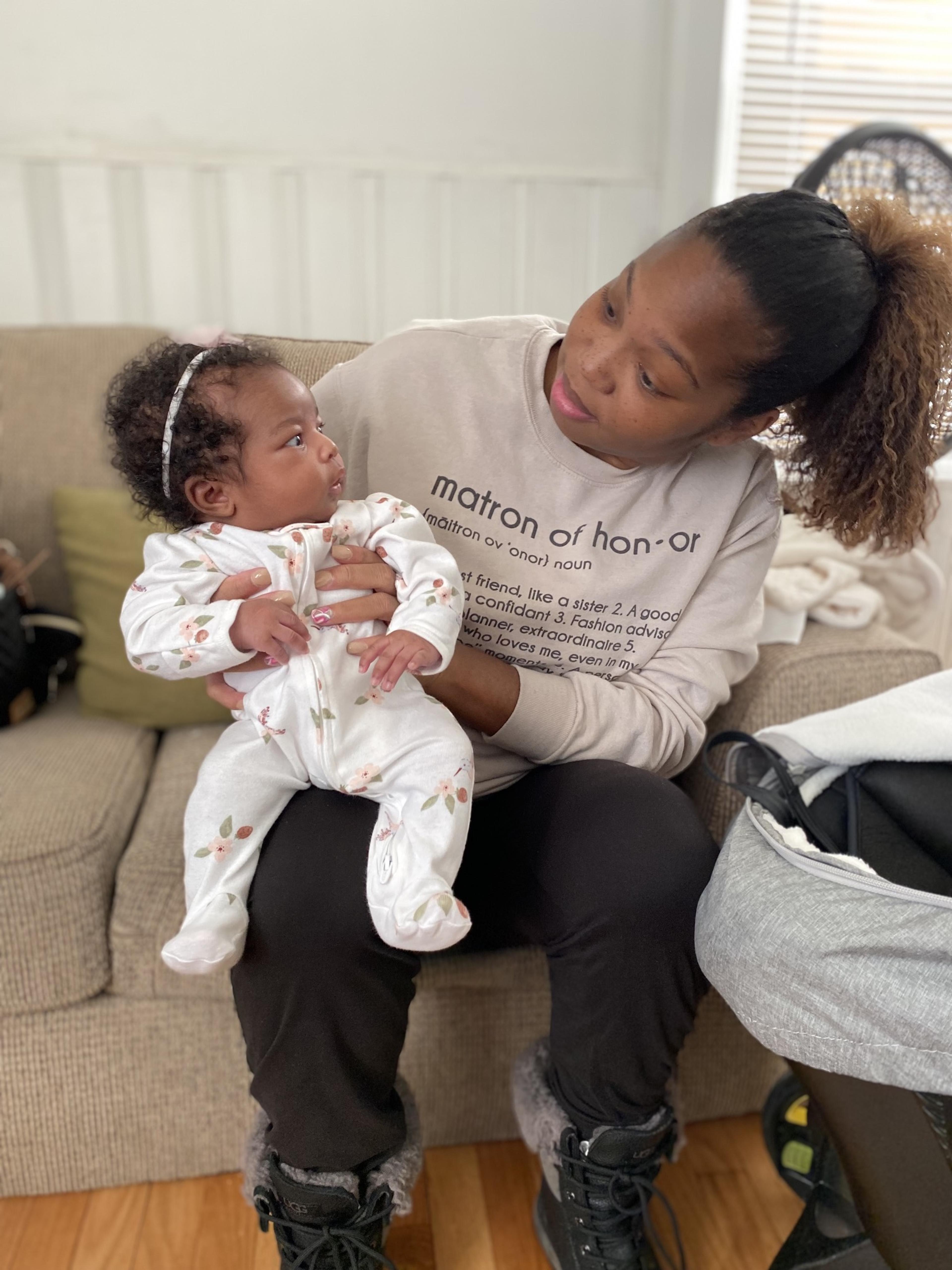
The grant allowed Birth Detroit to order additional blood pressure cuffs, iron supplements, pre-natal vitamins, and blood builders to prevent pre-birth anemia. Not all clients have transportation issues, but for the ones that do, grant funds were used to pay for clients’ Lyfts.
“We find ways, no matter what the grant size is, to put it in places that we know it can have a great impact,” Snow said. “This grant has definitely been impactful on our end. Without this type of grant, we wouldn’t be able to offer the additional services.”
Rootead Enrichment Center
Rootead Enrichment Center’s Birth Justice branch works to provide resources and supportive services during pregnancy and throughout first-year postpartum in Kalamazoo County.
“Infant mortality in our community is really high,” said Rootead Founder and Executive Director Kama Mitchell. “Black babies are three to four times more likely to die than white babies, regarding of socioeconomic status, and that’s a huge barrier and issue for us.”
Perhaps the most coveted resource for Rootead clients is the organization’s Doula Collective, formed to address Black infant mortality with community care and principles of traditional healing practices. Doulas are there to empower women through pregnancy and postpartum and support mothers during a pivotal part of their lives.
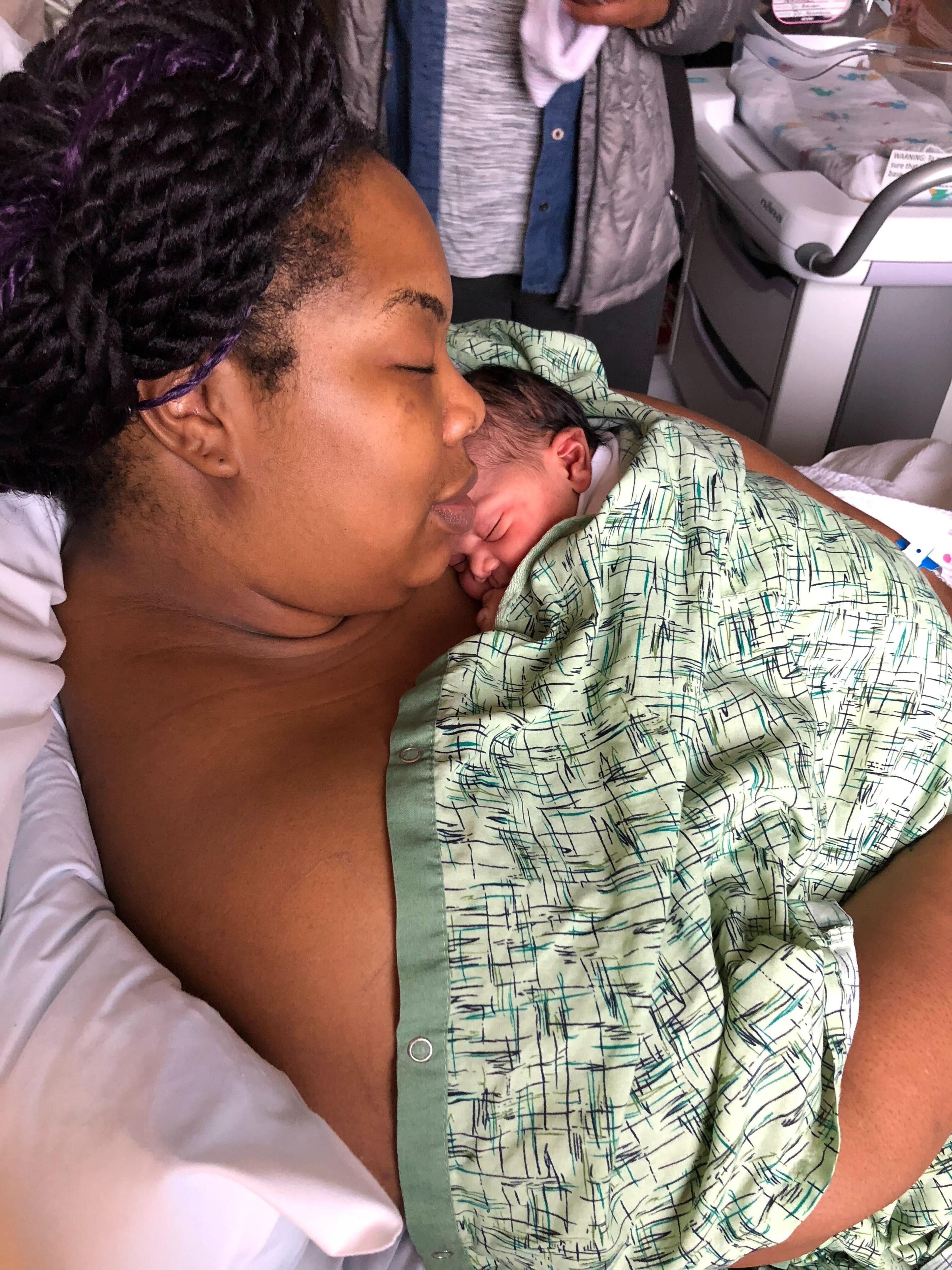
Rootead’s 2021 BCBSM Foundation grant for $35,000 was primarily used to train more doulas – of which the organization currently has seven – buy more medical room supplies, such as blood pressure cuffs and protein urine strips, and provide professional enrichment for staff members.
Mitchell said the Doula Collective has attended 43 births since 2020.
“We also utilized some of the funds to organize our clients in a HIPAA CRM, like a clientele retention model,” Mitchell said, referring to a HIPAA-compliant, custom relationship management (CRM) system. This is software designed to help nonprofits, educational institutions, and businesses manage their relationships with current and prospective clients.
“And then we used some funds to actually pay our doulas to attend some of the births of our clients,” she added. “We offer almost all services at low to no costs.”
Mitchell said the Community Health Matching grant provided Rootead’s Birth Justice branch with access and ability to serve more people. It opened the door to a new partnership, too.
“Most of our funding comes from local foundations, and it was really nice to receive funding outside of our local foundation that leaned into trusting what we are doing,” Mitchell said. “The grant really supported the work of that branch in a way that we’re so grateful for.”
Visit the BCBSM Foundation website to learn more about Community Health Matching Grant Program, including eligibility, proposal requirements, and more. Check out these Foundation stories to learn more about the groundbreaking accomplishments made by Michigan nonprofits over the last few years:
- United Methodist Community House Making Healthy Groceries More Affordable for Grand Rapids and Kent County Residents
- PEARS Increases Early Autism Identification in Toddlers with Play-Based, Rapid Interactive Screening System
- Blue Water Area YMCA Promoting Physical Fitness, Decreasing Social Isolation Among Older Adults in Michigan’s Thumb




